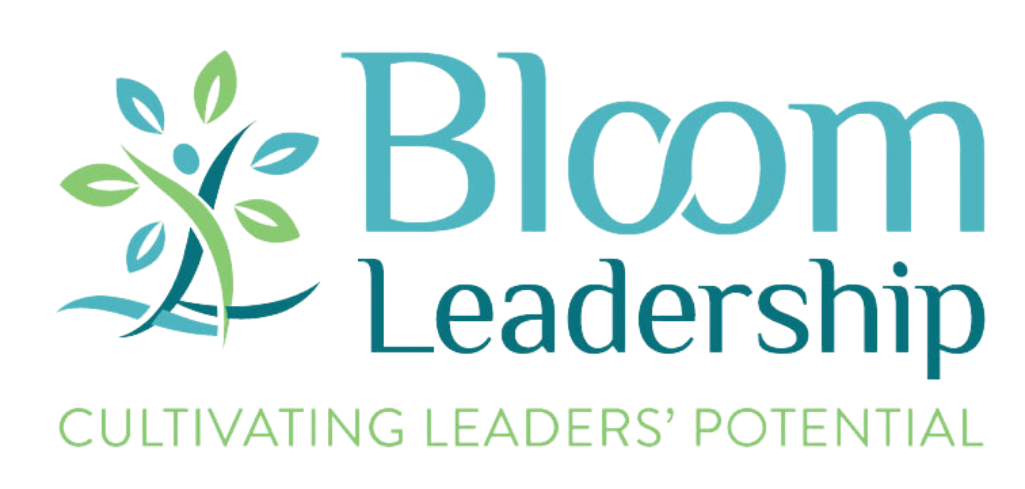Talent is Something You Make Bloom
Every once in a while, you’ll hear a quote that resonates with you. Most recently, the one that sticks out is “talent is something you make bloom.” Apart from the connection with my business name, Bloom Leadership, it raises some excellent points that often come up during coaching and training sessions: is talent something you’re born with or something you cultivate?
I’d propose that it’s both.
Planting Seeds
Some of us are born with skills or features that set us up for success. We see this often with athletes who have a natural ability-- be it through specific skills or physical traits-- that put them ahead of others in their field. However, despite the fact that Sidney Crosby or Serena Williams might have been born with the inclination toward their sports, it’s the years of honing that talent through dedication and hard work that has made them the athletes they are today.
“A flower doesn’t compare itself to the flower next to it; it just blooms.”
Natural talent is like a seed that is planted in someone from an early age. However, if they don’t tend to it, it won’t flourish. Alternatively, someone can plant that seed later on and spend their time taking care of it, giving it what it needs to help it grow. While their bloom may not be as tall or majestic of one that was planted earlier and cultivated with care, it still has the potential to be amazing.
In plain speak, hard work and dedication is the key to growth and development, whether or not you have natural talent.
Comparison as the Thief of Joy
The idea that talent is something you make bloom and the idea that hard work outranks talent leads to a similar quote worth noting: “a flower doesn’t compare itself to the flower next to it; it just blooms.”
With this quote, we look at the idea of comparison as the thief of joy. What does this mean? Even if you’ve planted your seed later in life and it’s overshadowed by a larger flower, it doesn’t mean that you should stop tending yours or feel dismayed at the success of others. It’s all about developing self-awareness and knowing your own desires, motivators, and skills. It’s having the confidence to pursue your goals regardless of what others are doing.
Constantly comparing yourself to another is known as benchmarking. The practice has merit in business situations when assessing the competition. In one’s personal life, and even in their professional goals, it can be damaging and limiting. It’s worth noting that even in a job application scenario where your competition is better than you, you can still land the position if you focus on what’s great about yourself.
How to Hone Your Talent
Another adage that rings true with a lot of people is the idea that “practice makes perfect.” To be able to develop your talent and tend to that seed, you need to put in the work. So how, specifically, can you improve a skill, whether it stems from an inherited talent or from a goal that you’re setting for yourself?
Author Daniel Coyle introduced the idea of building skills and talents by implementing the R.E.P.S. Gauge, which stands for the following:
Reaching and repeating
Engagement
Purposefulness
Strong, speedy feedback
Are you pushing yourself to the limit in trying to better your talent (i.e., reaching?). Are you remaining consistent and practicing often? Set a goal for how many times and hours each week that you will dedicate to practicing and honing a specific skill.
Engagement asks you to consider how dedicated you are to the task. What is your motivator behind developing this skill? What is the opportunity cost of putting your focus here? What will happen if you do or do not better yourself in this area? Be sure you aren’t doing something for the sake of doing it, when your attention would be better focused elsewhere.
Purposefulness is an expansion of engagement. How does the task you’re focusing on connect with your goals? For example, if you know that doing more speaking engagements will help you advance your career and land a position on a board, you may focus on improving your public speaking skills. A coach may strive toward improving their active listening skills. Ensure everything that you do has a purpose.
Finally, you need to be able to assess the outcomes and make decisions based on your practice through strong, speedy feedback. This is hard to achieve if you’re going through the process solo. Add metrics of success that will allow you to track your progress. Alternatively, working with a coach can help you get an outside opinion and effective feedback to help you plot your course forward.
Every Flower Must Grow Through Dirt
To be able to achieve your goals, you need to be comfortable with being uncomfortable. Honing your talents and pursuing your dreams will be a challenging road. Like the seed you’ve planted, you must push your way upward through the dirt to see the sun.
By focusing on your goals and working toward whole person development and improvement, you can cultivate your skills and watch success bloom in all areas of your life.
Meredith Wailes is the president of Bloom Leadership.
Her goal is to eliminate suffering in the workforce by creating exceptional value and growth for business and entrepreneurs.
For more information on how we achieve this please check out Bloom Leadership.
More of the Latest Insights





